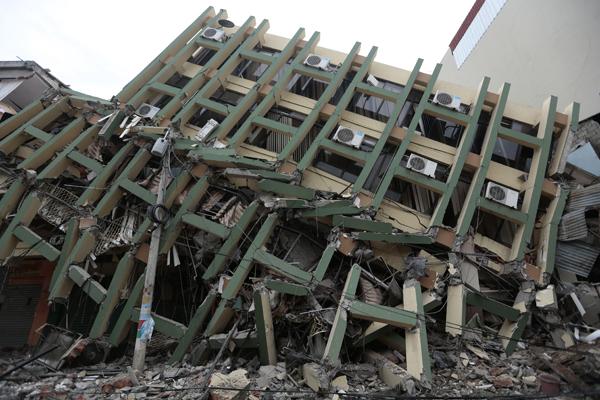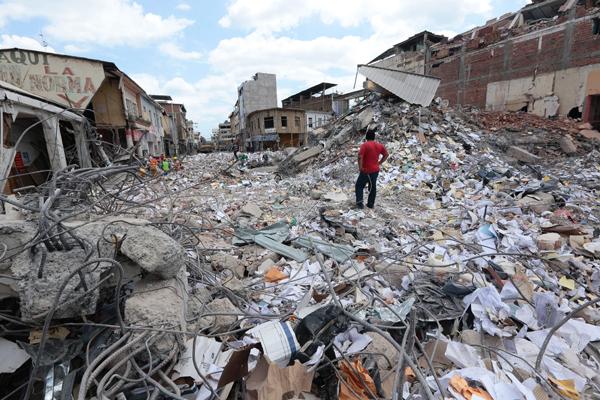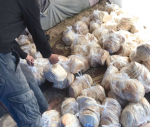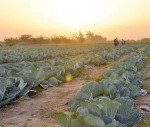You are here
Ecuador disaster toll tops 500, big new quake shakes coast
By Reuters - Apr 20,2016 - Last updated at Apr 20,2016
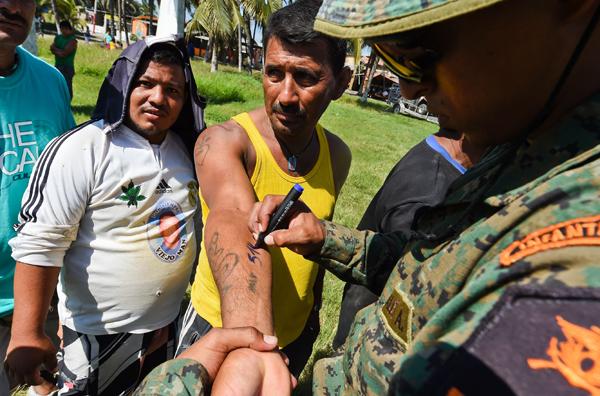
A soldier writes an ID number on the arm of a man lining up to get food aid in Manta, Ecuador, on Tuesday (AFP photo)
PEDERNALES, Ecuador — A magnitude 6.2 earthquake shook Ecuador's already devastated Pacific coast before dawn on Wednesday, terrifying residents and hindering rescuers searching for survivors of an even bigger quake at the weekend which killed more than 500 people.
The latest big tremor, which followed several hundred aftershocks from Saturday's 7.8 quake, hit 25km off the island of Muisne on the northwest coast at a depth of 15km, the US Geological Survey said.
That was near the epicenter of Saturday's major quake, which leveled a long swath of the coastline and dealt a major blow to the oil-producing nation's already fragile economy.
Two strong tremors of about 30 seconds each woke people up and sent them running into the street.
"You can't imagine what a fright it was. 'Not again!', I thought," said Maria Quinones in Pedernales, which bore the brunt of Saturday's disaster. On a highway outside town, children sat holding placards saying "food, please".
No tsunami warning was issued and there were no immediate reports of deaths or major new damage. Ecuador's Geophysical Institute said there were 17 aftershocks.
Local media said rescue operations were temporarily suspended as hopes dwindled of finding anyone alive from Saturday's quake, which killed 525 people, according to a central government tally.
More than 100 people are still missing and more than 4,600 were injured in that disaster, which destroyed about 1,500 buildings, triggered mudslides and tore up roads.
Some 23,500 people are sleeping in shelters, their homes and livelihoods crushed.
‘Please, give us the corpses’
President Rafael Correa, supervising work in the disaster zone, said the weekend quake had inflicted $2 billion to $3 billion of damage and could knock 2 to 3 percentage points off growth, meaning the economy could shrink this year.
Lower crude oil revenue had already left the poor Andean nation of 16 million people facing near-zero growth and lower investment, forcing it to seek international financing.
Meanwhile, survivors in isolated communities struggled without water, power or transport, although aid was trickling in. Along Ecuador's Pacific coast, sports stadiums served as both morgues and aid distribution centres.
Scores of foreign aid workers and experts arrived to help, and about 14,000 security force members were keeping order, although only sporadic looting has been reported.
Rescuers were losing hope of finding anyone alive even as relatives of the missing begged them to keep looking.
"There is still a small margin of time to find survivors," Correa said. "But I don't want to give excessive hope."
One woman, who arrived from the highland capital Quito in search of her daughter and niece who had been on a beach trip, urged police to take care with excavators as they searched a destroyed hotel in Pedernales.
"Please", she said, "at least give us the corpses intact".
Related Articles
PEDERNALES/PORTOVIEJO, Ecuador — The death toll from Ecuador's worst earthquake in decades rose to 350 on Monday while traumatised survivors
MANTA, Ecuador —The death toll from Ecuador's biggest earthquake in decades soared to at least 233 on Sunday as rescuers using tractors and
PEDERNALES, Ecuador — Ecuador announced drastic economic measures late Wednesday, including a hike in some taxes and mandatory wage contribu



